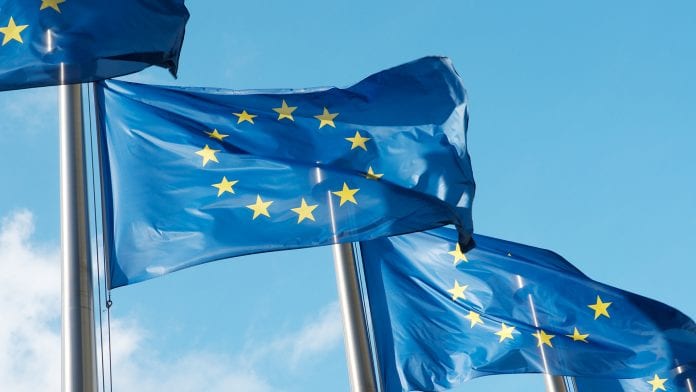
More than €10bn of funding is available to help innovators across the European Union meet their specific health research and needs.
Horizon 2020 is the EU’s biggest research and innovation programme to date, with over €80 billion of funding available to secure Europe’s place as a producer of world-class innovation in science.
Over the last seven years, Horizon 2020 has invested more than €10bn into health research with the promise to create more breakthroughs, discoveries and world-firsts by allowing companies, research groups and both public and private sectors to focus on what’s important and take their ideas from laboratory to the market.
Investing in better health research for all
Horizon 2020 represents an investment in creating better health for every citizen. The project aims to keep older people active and independent for longer and support the development of new, safer and more effective interventions.
Personalising healthcare is at the forefront of the industry and Horizon 2020 will call for more research and innovation to improve our understanding of the healthy ageing and disease, improve our ability to monitor health by detecting, preventing, treating and managing diseases and test new and important models and tools for health and care delivery.
Under the Horizon 2020 project, there are five key areas of research, these include:
Collaborative research
This area aims to support multidisciplinary and cross-sector research on healthcare and transforming new founded knowledge into practical applications for the benefit of society.
The priorities of the collaborative research programme include:
- Personalised medicine;
- Innovation health care and industry;
- Infectious diseases and improving global health;
- Innovative health and care systems;
- Decoding the role of the environment and climate change for health and wellbeing;
- Digital transformation in health and care; and
- Trusted big data solutions for cybersecurity for healthcare.
Innovative health and care industry
This involves offering grants towards translating innovative ideas into practical healthcare products and treatments to benefit citizens, healthcare systems and businesses. Funding is available to a range of innovators including SMEs (small to medium sized enterprises), academics, institutions, industry professionals, NGOs and public bodies.
Funding is available in various forms, including through EIT Health, fast tracking grants for bottom-up proposals; and Horizon prizes, which involve a cash reward to whoever can most effectively meet a defined challenge.
Additionally, the innovative medicine initiative will enable researchers to focus on improving patient access to personalised medicine to the health and wellbeing of all, especially in areas which currently have unmet needs and the Innovfin infectious diseases grant will provide loans to support the bankable development of innovative vaccines, drugs, medical and diagnostic devices or novel research infrastructures to combat infectious diseases.
Blue sky research
This is area aims to reinforce and extend the excellence of the EU’s science base across health related research. These include:
- European Research Council (ERC) – to promote investigator driven or bottom-up frontier research via grants;
- Future and Emerging Technologies (FET) – To offer grants that develop new lines of technology through unexplored collaborations between multidisciplinary collaborations and innovative engineering; and
- Marie Sklodowska-Curie Actions – which will provide grants for all stages of research and encourage transactional mobility across all sectors.
Working with member states and international partners
The aim of this area of research is to foster European and global coordination in health and disease research and support clinical trials.
The European & Developing Countries Clinical Trials Partnership (EDCTP) funds clinical research to accelerate the development of new or improved drugs, vaccines, microbicides and diagnostics against HIV/AIDS, tuberculosis and malaria as well as other poverty-related infectious diseases in sub-Saharan Africa, with a focus on phase II and III clinical trials.
Future and Emerging Technologies (FET)’s mission is to turn Europe’s excellent science base into a competitive advantage, with the aim of using visionary thinking to open up promising avenues towards powerful new technologies.
The focus of ERA-NET is a funding instrument designed to support public-public partnerships in their preparation, the establishment of networking structures, design and implementation and the coordination of joint activities
Infrastructures
This will involve conducting research and creating innovative ideas to support facilities, resources and services used by the healthcare industry. The grant will support facilities, resources and services used by the science community to conduct research and foster innovation in biological and medical sectors.
Looking ahead towards Horizon Europe
Set to launch in 2021, Horizon Europe will build on the achievements and success of Horizon 2020, bridging the past and the future of research and innovation in Europe with a proposed budget allocation of €100 billion for the period spanning 2021 to 2027. There will be three areas that will receive funding, these include:
- Open Science, with a budget of €25.8bn;
- Global Challenges and Industrial Competitiveness, with a budget of €52.7bn;
- Open Innovation, with a budget of €13.5bn.
The European Commission is proposing a total budget of €100bn between 2021 and 2027 for Horizon Europe and the Euratom Research and Training Programme. The new Framework Programme is intended to be the most ambitious research and innovation funding programme to date.
With more funding available for Horizon Europe, researchers and companies within the healthcare sector can expect to see, over a seven year period, €7.7bn granted in funding.
The previous European Commissioner for Research, Science and Innovation, Carlos Moedas, explained: “We are now on track to launch the most ambitious ever European research and innovation programme in 2021, shaping the future for a strong, sustainable and competitive European economy and benefiting all regions in Europe.”
Do you want the latest news and updates from Health Europa? Click here to subscribe to all the latest updates, and stay connected with us here.








